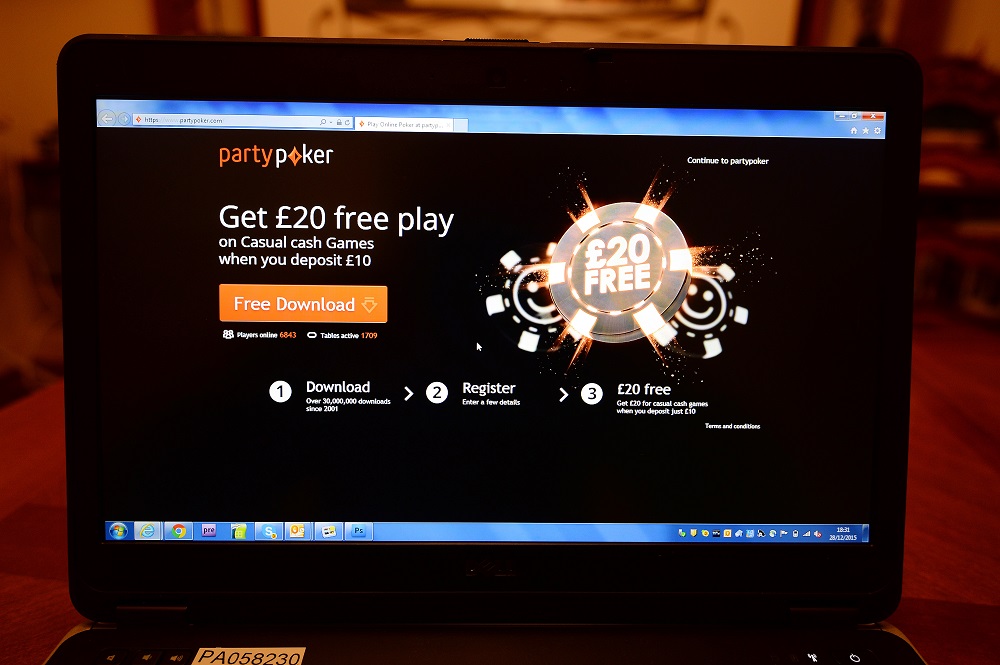Gambling firms to face compulsory levy in long-awaited White Paper proposals

Gambling companies are to be forced to step up checks on punters “to better protect even those unable to afford small losses” under plans to tackle addiction in the biggest shake-up of the industry’s regulations in 15 years.
Plans also include maximum stakes for online slot machines of between £2 and £15 for all customers subject to consultation and a new statutory levy which will see gambling companies required to fund more groundbreaking research, education and treatment, UK Culture Secretary Lucy Frazer said.
Ms Frazer said in a statement to the Commons: “We need a new approach that reflects that a flutter is one thing, unchecked addiction is another.
“So today we are bringing our pre-smartphone regulations into the present day with a gambling White Paper for the digital age.”
Ministers are undertaking the most comprehensive review of gambling laws in 15 years to ensure they are fit for the digital age following an explosion in online betting and a string of high-profile cases where customers have suffered huge losses or taken their own lives.
Stalled
Initiated in December 2020, the much-postponed review has been supervised by four culture secretaries, six gambling ministers, and three prime ministers, and its official release stalled four times throughout government turmoil and the pandemic.
Ms Frazer also announced that the Gambling Commission would consult on bonus offers to ensure they were not being used to “exacerbate harm”.
She said: “We know many addicts find each time they break free from the temptation to gamble, they are drawn back into the orbit of online companies with the offer of a free bet or some free spins.
The statutory levy would “turn the tables on problem gambling, one that sees gambling companies required to fund more groundbreaking research, education and treatment”, while plans to create a non-statutory ombudsman would give customers a single point of contact.
Ms Frazer also said the UK Government will do more to “protect children” by “ensuring children can do no forms of gambling, either online or on widely accessible scratch cards”.
On the plan to remove restrictions for the land-based sector, she said: “Finally, we know the current status quo disadvantages casinos, bingo halls and other traditional premises compared to their online equivalents.
“A number of assumptions which prevailed at the time of the 2005 Act now look increasingly outdated.
“So we plan to rebalance regulation and remove restrictions which disadvantage the land-based sector.”
Addiction
NHS director for mental health Claire Murdoch said: “The NHS has long called for action to tackle gambling addiction which destroys people’s lives – I have personally heard of countless examples of people bereaved by gambling addiction or who have contemplated suicide – so I am delighted that the Government has committed to tackling this cruel disease.
“While the NHS is treating record numbers, with almost 50% more referrals last year compared to the previous year, it should not be left to the health service to pick up the pieces left behind by a billion-pound industry profiting on vulnerable people, so I fully endorse the statutory levy set out in today’s White Paper and look forward to reading the proposals in detail.”
Zoe Osmond, chief executive of charity GambleAware, said: “We’re pleased that after years of delay the gambling White Paper is finally being published.
“This White Paper is just the start of the process, so we hope any subsequent consultation period is swift to ensure sufficient protections are in place to help prevent gambling harm.
“As the leading charity and strategic commissioner of gambling harm prevention and treatment services across Great Britain, we will continue to play our full part in collective efforts to achieve a society free from gambling harms.”
Support our Nation today
For the price of a cup of coffee a month you can help us create an independent, not-for-profit, national news service for the people of Wales, by the people of Wales.




